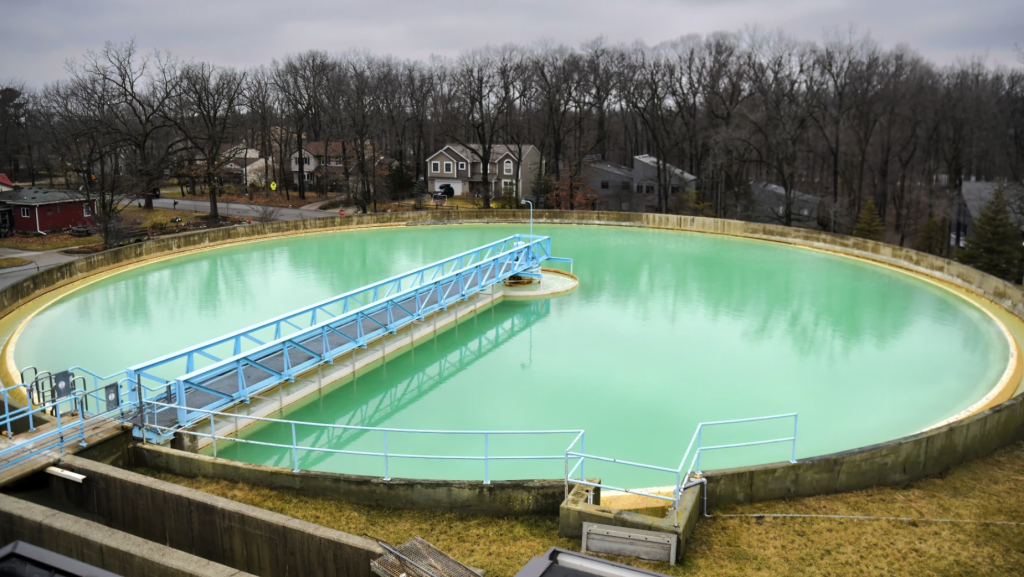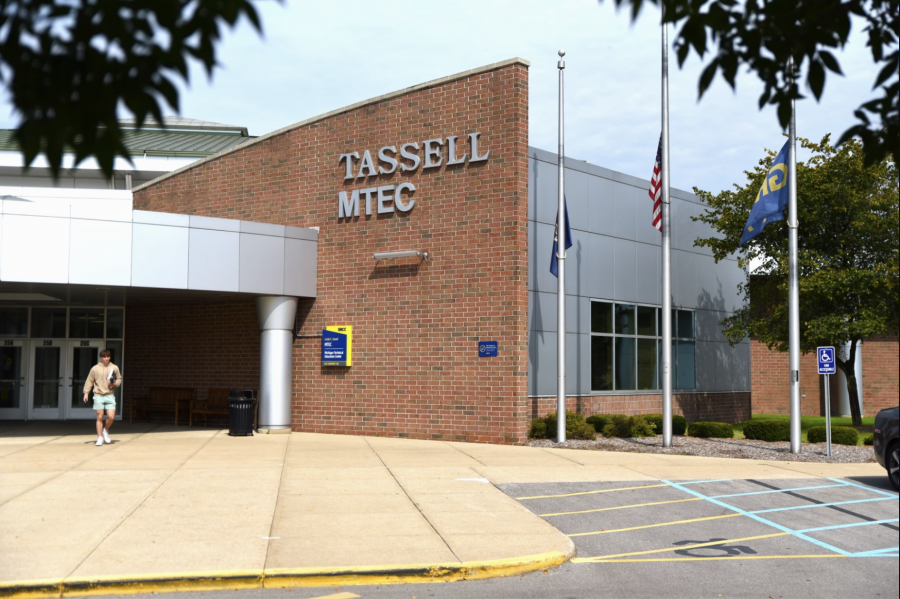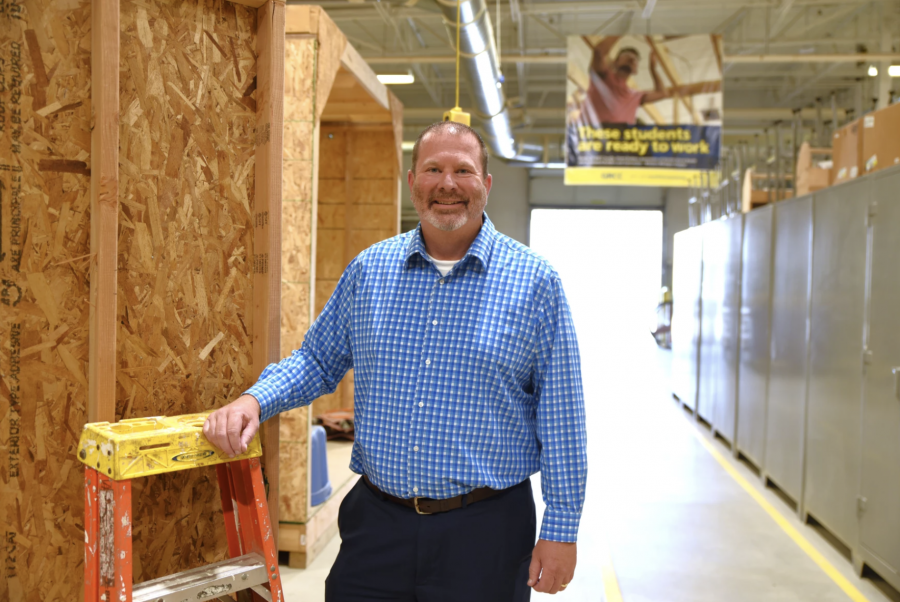Retirements by water and wastewater plant operators are leading to workforce shortages
Lester Graham September 24, 2024Worker shortages is one of the top 10 concerns among leaders in the industry, according to a 2024 report by the American Water Works Association.

A clarifying tank at a Michigan drinking water plant.
Across the U.S., drinking water and wastewater utilities are losing experienced workers at an escalating rate. It’s part of the “silver tsunami” of baby boomer retirements.
The U.S. Environmental Protection Agency says that “silver tsunami” is just beginning to sweep across the nation.
“We’re seeing between 30 and 50% of our water workforce being eligible to retire within the next 5 to 10 years,” said Bruno Pigott, the EPA’s acting assistant administrator of water.
He was quoting from a report released six years ago by the Brookings Institution. While the data are hard to confirm, it appears the country is heading toward that projection.
An analysis by Michigan Public finds automation will replace some workers, but retirements will exceed that and lead to shortages.
The Bureau of Labor Statistics expects a drop in water operator jobs nationwide over the next decade as automated systems take over more tasks. Despite that, an estimated 10,000 positions will need to be filled each year to make up for people who leave these jobs to go to another industry, return to school or retire.
Finding workers interested in working in drinking water, stormwater, or wastewater systems is not always easy. Many public workers are fairly high profile. We often see police, firefighters, and teachers at work.
“But there’s a whole group, and that’s our water and wastewater professionals, that are less well known because as long as we are able to flush our toilet, as long as we’re able to ensure that when we turn on the tap, the water flows freely and is high quality, we don’t think about it,” Pigott said.
But failure to replace water workers is not like the workforce shortages we see in other areas.
“It’s not something that you can just shut off because you have a workforce shortage,” said Barb Martin, director of engineering and technical services at the American Water Works Association. Government and private water utilities are hoping to entice people to train for those jobs.
“The workforce of now, and really looking at the workforce of the future, needs to be well-skilled in digital technologies because that does seem to be the direction that the industry is heading,” Martin said, although not every position will need high tech skills.
Many water workers are on the streets, repairing water lines. In systems that still have the position, some workers read meters. Others could be billing customers or ordering chemicals to clean water or disinfect it.
In a 2024 report by the American Water Works Association, worker shortages is one of the top 10 concerns among leaders in the industry. The top concern is protecting water sources.
The water works association trains workers who have some experience already, including high-level courses for the next generation of water utility leaders. They not only have to manage the utility, but they also have to solve community problems and manage the cultural shifts that encourage community building, according to a brochure on the association’s Transformative Water Leadership Academy.

The Michigan Section of the association also regularly holds training sessions for current waterworks employees around the state to help them maintain certification or advance their skills for that next promotion.
But association members also know entry level positions need to be filled.
The Brookings report said 53% of water workers have a high school diploma or less. So they can get their foot in the door. But they’ll need on-the-job training, learning a variety of tools and technology.

There are training programs for people with no experience in waterworks.
Grand Rapids Community College won a $1 million grant from the EPA to work with the city of Grand Rapids to attract and train people. Often, they’re recruiting students from disadvantaged communities who typically are unaware of job opportunities in municipal waterworks.
The sound of hammers and drills echoed in a GRCC construction lab recently. Student carpenters and electricians were practicing on mock housing sections. But there is no waterworks lab.
“Our people are actually on site on our internship with the city of Grand Rapids and the drinking water or the wastewater treatment facilities,” said John VanElst, interim dean of the college’s School of Workforce Training.
He said a unique part of the Water Career Program is a year-long internship with a mentor on the job. Students are paired with a city employee at one of the Grand Rapids municipal plants.
VanElst said it only made sense to work with the city.

“We decided three years ago, let’s look at a grant with the EPA that just came out and write for this together with the City of Grand Rapids to see if we can help them with this retirement that they’re going to be facing and are facing right now.”
There are other elements. A student study course is provided by Bay College in Escanaba. Those online courses are needed to pass state certification tests.
VanElst said the combination of online work and on-the-job work gives students a real-world look at different kinds of jobs.
“It’s nice because they get a good idea of what they want to do right and maybe what they don’t want to do. And the best part, too, is that they have mentors along the way.”
He added they hope to soon help surrounding cities such as Wyoming, Holland, Muskegon, and others build up their water workforces.
One thing that should be noted about these jobs in the water workforce is that the jobs pay better than average. That’s especially true among the positions lower on the pay scale, according to the Brookings Institution report.
